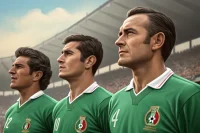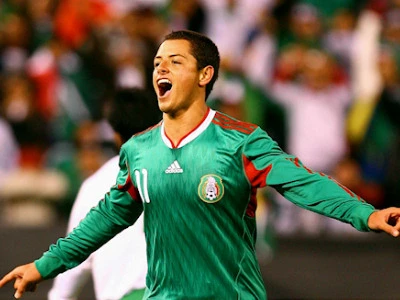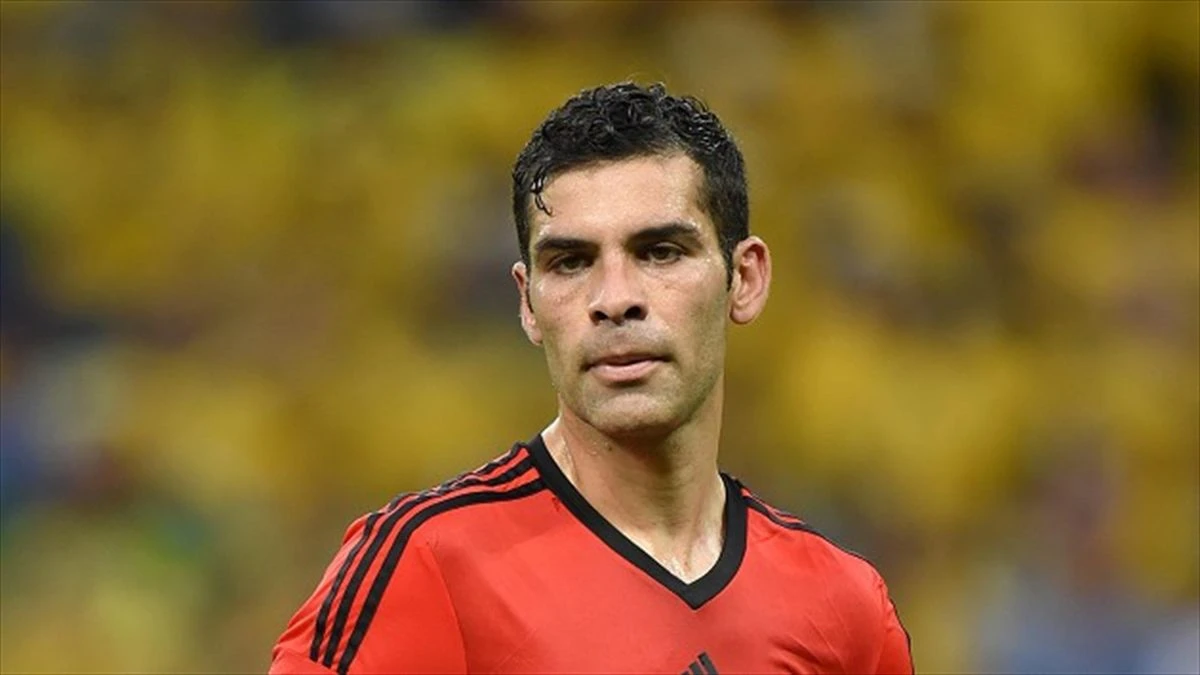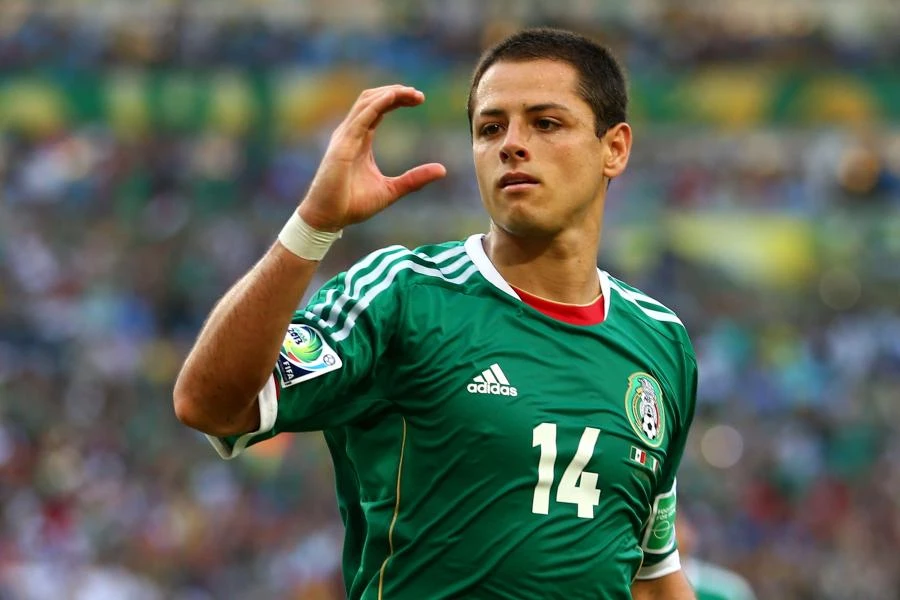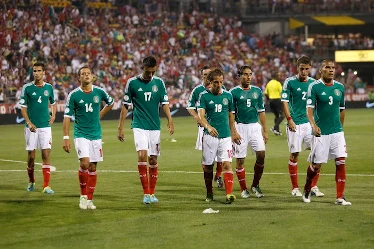Mexican Football: its Legends
Mexican football has a rich and storied history, filled with legendary players who have not only elevated the sport in Mexico but also left an indelible mark on the global football stage. The success and passion surrounding the game in Mexico is driven by these icons, whose exceptional skills, leadership, and determination have shaped the nation’s football legacy. From the early days of Mexican football to the modern era, players like Hugo Sánchez, Cuauhtémoc Blanco, and Rafael Márquez have captured the hearts of fans both in Mexico and around the world, inspiring generations of young athletes to pursue football as a career.
History of Mexican Football
The history of Mexican football is deeply intertwined with the country’s cultural and social fabric. Football was introduced to Mexico in the late 19th century, primarily through British expatriates who brought the game to the port cities, notably Veracruz and Tampico. The first recorded match in Mexico took place in 1902, and soon after, the first Mexican football clubs began to emerge. However, it was not until the 1920s that football began to gain significant popularity across the country. In 1927, the Mexican Football Federation (FMF) was founded, which helped organize the game and establish the official structure of competitive football in Mexico. By the 1930s, the game had become firmly rooted in Mexican culture, and in 1930, Mexico participated in the first-ever FIFA World Cup in Uruguay, marking the beginning of the country’s long-standing association with international football.
The 1940s and 1950s marked an important period for Mexican football. This era saw the rise of some of the first Mexican football legends, including Javier de la Torre and Raúl Cárdenas, who helped elevate the sport domestically and internationally.
The 1960s were also a milestone in Mexican football, as the country gained global recognition when it was selected to host the 1970 FIFA World Cup, the first time Mexico would host the tournament. This was a transformative moment for the country, as it placed Mexico on the international football map, leading to the development of more advanced football infrastructure and the professionalization of the sport. The 1970 World Cup was particularly memorable for Mexico’s performance, where they reached the quarterfinals, and players like Jorge Valdivia and Guillermo Hernández became national heroes.
The following decades brought both triumphs and challenges for Mexican football, but it was in the 1990s that the sport truly exploded in popularity. Mexico’s consistent success in CONCACAF tournaments, their competitive performances in World Cups, and the rise of domestic clubs like Club América, Chivas, and Cruz Azul helped solidify the football culture. By 1999, Mexico’s national team claimed the Copa América title in a historic win over Brazil, signaling their arrival as one of the leading footballing nations in the Americas. The 2000s and 2010s saw a surge in Mexican players joining top European clubs, while domestic football continued to thrive with iconic players like Cuauhtémoc Blanco, Hugo Sánchez, and Rafael Márquez. Today, football remains Mexico’s most popular sport, with a passionate fan base that fills stadiums for domestic league matches and international fixtures.
Key Milestones in Mexican Football History:
- 1902: The first recorded football match in Mexico.
- 1927: The formation of the Mexican Football Federation (FMF).
- 1930: Mexico participates in the first FIFA World Cup.
- 1970: Mexico hosts the FIFA World Cup for the first time.
- 1999: Mexico wins their first Copa América title.
Iconic Players Who Shaped the Sport’s History
One of the earliest and most celebrated figures in Mexican football is Hugo Sánchez, whose name is synonymous with excellence in both Mexican and international football. Sánchez’s career spanned across clubs in Mexico and Europe, with his most notable achievements coming during his time with Real Madrid in Spain. Throughout the 1980s, he became known for his incredible scoring ability, athleticism, and flair. With Real Madrid, Sánchez won five La Liga titles and was the league’s top scorer four times. His exceptional ability in the air, precise finishing, and bicycle kicks earned him a place among the greatest footballers of his time. Sánchez also played a significant role in the Mexican national team, scoring 23 goals in 27 appearances during the 1980s. His influence on the sport in Mexico cannot be overstated, as he paved the way for Mexican players in European leagues.
Another legendary figure in Mexican football is Cuauhtémoc Blanco, a player whose technical skills, creativity, and leadership made him an icon both in Mexico and abroad. Blanco, known for his unique dribbling style, ability to score long-range goals, and his famous “Cuauhtemiña” move, became the heart and soul of the Mexican national team during the late 1990s and early 2000s. He played for various clubs, including Club América, where he achieved legendary status, winning multiple titles. Blanco’s impact on Mexican football was profound, as he was often the difference-maker in crucial matches, both for his club and the national team. His long and successful career culminated in his participation in four World Cups, showcasing his enduring talent at the highest level of international competition. Blanco’s passion for the game and his leadership qualities cemented his place as one of the greatest Mexican footballers in history.
No discussion of Mexican football legends is complete without mentioning Rafael Márquez, who is widely regarded as one of the best defenders in the history of Mexican football. Márquez’s career spanned across some of Europe’s most prestigious clubs, including AS Monaco and FC Barcelona. With Barcelona, he won numerous La Liga titles and UEFA Champions League trophies, establishing himself as a key player in one of the most successful teams in European football history. Márquez was known for his exceptional tactical awareness, leadership, and ability to control the game from the backline, often playing as a central defender or defensive midfielder. His vision and passing range made him a pivotal figure in both his club and national team. Márquez’s leadership on the field was invaluable, and he captained the Mexican national team in multiple World Cups, guiding them through some of their most memorable moments on the world stage.
Another legend who deserves recognition is Jared Borgetti, a prolific striker known for his goal-scoring prowess. Borgetti’s name became synonymous with Mexican football throughout the late 1990s and early 2000s, as he was Mexico’s all-time top scorer at the time, with his aerial ability, poise in the box, and clinical finishing. His iconic goal against Italy in the 2002 World Cup, a header that epitomized his skill and precision, remains one of the most memorable moments in Mexican football history.
Borgetti’s impact extended to his domestic career as well, playing for clubs like Santos Laguna and Atlas, where his consistent goal-scoring helped elevate the Mexican league’s reputation. As a forward, Borgetti’s legacy is cemented through his contributions to both the national team and the clubs he represented.
| Legend | Position | Key Clubs | Major Achievements |
|---|---|---|---|
| Hugo Sánchez | Forward | Real Madrid, Atlante, UNAM Pumas | 5 La Liga titles, 4-time top scorer in La Liga, 1986 World Cup participation |
| Cuauhtémoc Blanco | Attacking Midfielder | Club América, Chicago Fire, Veracruz | 4 World Cups, multiple Liga MX titles, 2000 CONCACAF Gold Cup winner |
| Rafael Márquez | Defender/Midfielder | Barcelona, AS Monaco, New York Red Bulls | 4 La Liga titles, 2 UEFA Champions League trophies, 5 World Cups |
| Jared Borgetti | Striker | Santos Laguna, Atlas, Al-Ittihad | Mexico’s all-time top scorer (at the time), 2002 World Cup goal against Italy |
The legacy of these legends is not just confined to their on-field achievements; it extends to their influence on the next generation of Mexican footballers. The success of players like Sánchez, Blanco, Márquez, and Borgetti helped elevate Mexican football to new heights, inspiring young talents to dream of international careers and success.
Their stories also reflect the growth of Mexican football, from a national pastime to a global phenomenon with the ability to compete at the highest levels of the sport. The passion, dedication, and professionalism of these legends paved the way for the current generation of Mexican footballers, such as Hirving Lozano, Raúl Jiménez, and Andrés Guardado, who continue to carry the torch of Mexican football excellence.
The impact of these legends is also felt off the pitch, where their involvement in coaching, mentoring, and football-related activities continues to shape the future of Mexican football. Their contributions to the development of football academies, their presence in media, and their work as ambassadors of the sport ensure that their influence will remain long after they retire. Through their efforts, Mexican football has solidified its place in the global football landscape, and the legacy of these legends continues to inspire fans and players alike.
Top Mexican Football Legends
Mexico has produced some of the most talented and influential footballers in the world, with a rich history of players who have left an indelible mark on the sport. Among these legends, Hugo Sánchez stands out as one of the most iconic figures in Mexican football history. Renowned for his incredible goal-scoring ability, Sánchez achieved legendary status both in Mexico and Europe, particularly during his time with Real Madrid. His prowess in the air, remarkable bicycle kicks, and sharp finishing made him one of the most feared forwards in the world during the 1980s. Sánchez’s time in La Liga saw him win numerous league titles and individual accolades, including four Pichichi Trophies for being the top scorer in Spain. His success at the club level was complemented by his leadership in the Mexican national team, where he played in the 1986 World Cup, making his mark as one of Mexico’s all-time greats. His legacy not only raised the profile of Mexican football internationally but also inspired countless young Mexican players to dream of playing in Europe’s top leagues.
Another towering figure in the history of Mexican football is Cuauhtémoc Blanco, whose technical brilliance, creativity, and passion for the game made him a fan favorite both in Liga MX and internationally. Known for his dazzling dribbling and the signature “Cuauhtemiña” move, Blanco’s career spanned several decades, with standout performances for Club América and the Mexican national team. Blanco played in four World Cups, earning respect as one of Mexico’s most talented attacking midfielders. His ability to control the game with vision and skill set him apart as a playmaker who could turn a match with a single moment of brilliance. Blanco’s contributions to Mexican football were not limited to his on-field performances; his leadership, fiery spirit, and charisma helped shape the culture of the sport in Mexico, cementing his place as a true legend.
Rafael Márquez, one of the greatest defenders in Mexican football history, is another cornerstone of the nation’s football legacy. Márquez’s exceptional football intelligence, leadership, and ability to control games from the backline earned him a distinguished career in both Europe and international football. Playing for elite clubs such as AS Monaco and FC Barcelona, Márquez won multiple La Liga titles and UEFA Champions League trophies, establishing himself as a key figure in one of the most successful eras of Barcelona’s history. As captain of the Mexican national team, Márquez played in five World Cups, representing the country with pride and consistency at the highest level. His ability to break up attacks, distribute the ball effectively, and lead by example made him one of the most respected defenders in the world, and his legacy continues to inspire Mexican footballers today. Márquez’s career stands as a testament to the strength of Mexican football, proving that world-class talent can emerge from every corner of the globe.
- Hugo Sánchez – Known for his extraordinary goalscoring ability and success with Real Madrid.
- Cuauhtémoc Blanco – Famous for his creative flair, dribbling skills, and leadership for both Club América and Mexico.
- Rafael Márquez – One of the best defenders Mexico has ever produced, with success at Barcelona and the Mexican national team.
- Jared Borgetti – A prolific striker and Mexico’s top scorer during his era, known for his aerial ability and key World Cup moments.
- Carlos Hermosillo – A strong forward who was an essential part of the Mexican national team during the 1990s.
Best Matches in Mexican Football
Mexican football has produced countless unforgettable matches, showcasing the passion, skill, and intensity that characterize the sport in the country. One of the most iconic encounters in Mexican football history was the 1999 Copa América final between Mexico and Brazil. Mexico had already proven themselves as a competitive force in international football, but this match solidified their place among the top teams in the Americas. With a thrilling 4-3 victory in a penalty shootout after a 0-0 draw, Mexico secured their first-ever Copa América title, overcoming a Brazilian team full of stars like Rivaldo and Cafu. Another unforgettable match came in the 2005 Confederations Cup, where Mexico faced Argentina in the semifinals. With a dramatic 1-1 draw that went into extra time, Mexico lost 6-5 on penalties, but the match is remembered for its incredible drama, skill, and the heroics of goalkeeper Oswaldo Sánchez. Domestically, some of the best matches in Mexican football have been between fierce rivals. The Clásico Nacional between Club América and Chivas is one of the most anticipated fixtures in Mexican football. The 2018 Clásico Nacional final in the Liguilla was a true spectacle, as Club América triumphed over Chivas with a thrilling 4-2 aggregate score to win the Liga MX title, making it a dramatic conclusion to the season for both clubs. These moments, along with many others, have shaped the history and excitement of Mexican football, providing fans with unforgettable memories and reinforcing the sport’s importance to the culture of the nation.
| Match | Year | Event | Result | Significance |
|---|---|---|---|---|
| Mexico vs Brazil | 1999 | Copa América Final | Mexico 0-0 Brazil (Mexico wins 4-3 on penalties) | Mexico’s first Copa América title |
| Mexico vs Argentina | 2005 | FIFA Confederations Cup Semifinal | Mexico 1-1 Argentina (Argentina wins 6-5 on penalties) | Dramatic match remembered for incredible drama |
| Club América vs Chivas | 2018 | Liga MX Final (Clásico Nacional) | Club América 4-2 aggregate score | Club América wins Liga MX title in a thrilling final |
| Mexico vs Germany | 1986 | FIFA World Cup Quarterfinal | Mexico 0-0 Germany (Germany wins 4-1 on penalties) | Historic World Cup match known for its emotional impact |
| Pumas UNAM vs Cruz Azul | 2004 | Liga MX Final (Liguilla) | Pumas UNAM 2-1 Cruz Azul | Pumas’ dramatic win for their third Liga MX title |
In conclusion, the legends of Mexican football have shaped the sport both in their home country and internationally. These iconic players have not only achieved success on the field but have also created a lasting legacy that will inspire future generations of footballers. From Hugo Sánchez’s incredible feats in Spain to Cuauhtémoc Blanco’s iconic moments with Mexico, the stories of these footballing legends reflect the passion and determination that are intrinsic to Mexican football culture. Their contributions to the sport will always be remembered, and their influence continues to resonate in the vibrant football community in Mexico today.
Partners:


